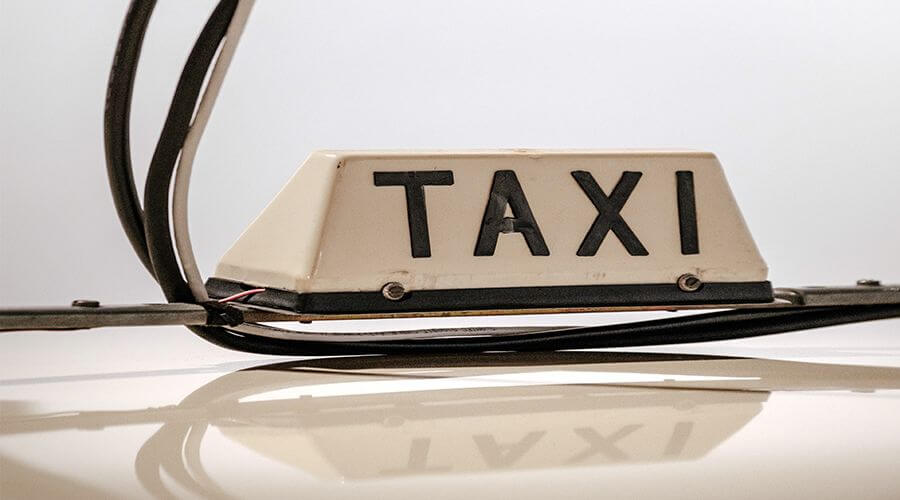All you should know if you take the taxi in Spain
One of the actions that all students will have to make at any time during your stay to learn Spanish at one of the Spanish schools in Spain, will be to get a taxi.
In our country you can take a taxi in three ways: call for city taxi service, go to a taxi rank or stop a taxi on the street, like in the movies. We will are going to teach you a series of words and phrases to practice Spanish in this situation:
Calling a Taxi
When you ask for a taxi service from any of the taxi stops in the city, you must take into consideration the order of the list of vehicles waiting. In a 50-meter radius from a stop, you can not call a taxi in traffic because it is not permitted for priority of the vehicle waiting in the stop. The telephone and radio taxi allow you to call a car to the waiting area running the taximeter. The taxi drivers can have a maximum amount, it depends on every city. If you have different phones about taxi associations to call we recommend generally phone of those with the highest number of partners, to provide a better service.
Price
In Spain, it is mandatory for taxis to submit the fee schedule in a visible place within the interior of the vehicle. The start rate is the cost from start the route, once the passenger is in the vehicle, except when you hire away. The information panel must include supplements and special rates on shipments to locations such as ports, airports, train stations, sports fields … or holding fairs and festivals on certain dates.
Pets
If you go with a dog or a pet, the driver can decide the entry of the animal. Small animals, in general, tend to be admitted. About large dogs usually depends on the driver. Taxi drivers can not refuse guide dogs accompanying to a blind person.
Payments
If you want to pay with banknotes value as 50 €, 100 € and up, you should know the rules that determine a limit in which the driver is responsible to change, usually just to 20 euros. If a passenger wants to pay a ticket from this minimum value, like 20 euros or less and the driver don’t have change, the taxi driver must leave the vehicle and stop the taximeter to get the change. If the ticket is more than 20 €, for example, 50 € and up, and the driver does not have change, you should go find change but in this case, the taximeter will not stop and the expense of this time is to the passenger. There are many taxi drivers can charge through credit card, but if you only have this way to pay, you must consult the driver.
Invoice
Taxi receipts must include the taxi license, usually stamped on the receipt. Taxi driver must also include the price of the route, date, number of ID identity and his signature. you can request on the origin and destination of the route and the time and rate applied. you can also ask to fill all details of receipt.
Claims
Taxi drivers must have complaint forms available to passengers. If they refuse to facilitate them or say they do not have forms, you can make a claim by mail, email, phone or fax, to the municipal office or official agency of the Autonomous Community. To do this you must request an invoice and check that comes with the basic data. As extra precaution you can always take note of the car registration, time and location to make the complaint.
Passenger’s Rights
Usually, it is established by municipal ordinance regulating taxi for each city. Among the basic rights, you can choose the route most appropriate, and you can request the volume up or down on control the radio or other audio and video equipment in the taxi.
Lost property
If an object is left in the taxi, you can go to the lost property office in the city.
Practical vocabulary
General Vocabulary:
Taxi: taxi City centre: centro ciudad
For hire: libre Occupied: ocupado
Taxi rank: parada de taxis To stop: parar
Traffic: tráfico Change: vuelta/cambio
Taxi driver: taxista Taxi ride: trayecto en taxi
Taxi fares: tarifa de taxis Taxi services: servicio de taxis
I am hurry: tengo prisa How much is it?: ¿Cuánto cuesta?
Slower/quicker: despacio/rápido Taximeter: taxímetro
Meter: contador Receipt: recibo
Supplement: suplemento Driver’s cabin: cabina del conductor
Taxi driver’s license: licencia de taxista Get a taxi: coger un taxi
Taxi Number: número de taxi Ordering a taxi: pedir un taxi
It is very important for all students who are studying a Spanish course in Spain know that taxi fares are different in each city. The meter, the minimum fare or rate per kilometer (or mile), are very different depending on where you study Spanish in Spain. Including in some cities, there are special rates on weekends, at night, or when you start a route from a train station or airport.
Ordering a taxi / In the taxi:
Is this taxi free?: ¿Está libre este taxi?
I’d like a taxi, please: me gustaría un taxi, por favor
Where I can get a taxi?: ¿dónde puedo coger un taxi?
How much is the final fare?: ¿cuánto es en total?
How much is the route to…?: ¿Cuánto cuesta el recorrido hasta …?
Stop here/ at the corner…: pare aquí/ en la esquina
Drop me here, please: Déme aquí, por favour
Could you wait for me here?: ¿podría usted esperarme aquí?
Can I have a receipt, please: Me da un recibo, por favor
Please put the meter on: por favor, ponga el taxímetro
Please take me to…: por favor, lléveme a…
Is there a supplement for going to the airport?: ¿Hay suplemento para ir al aeropuerto?
Is there a supplement for baggage?: ¿Hay suplemento por el equipaje?
Do you have a taxi service number?: ¿Tiene usted el teléfono de servicio de taxis?
How long will I have to wait?: ¿cuánto tiempo tengo que esperar?
Do you mind if I open/close the window?: ¿le importa si abro/cierro la ventana?
That’s fine, keep the change: está bien, quédese el cambio
We hope our list will help you to improve your vocabulary and advice during your stay to learn Spanish in Spain. And remember that you can not miss our next class of practical vocabulary.
Did you like this post?
CHECK ALL THE FREE RESOURCES FOR LEARNING SPANISH ONLINE
Free Basic Spanish resources
- Spanish Alphabet
- Spanish Numbers
- Days of the Week in Spanish
- Months in Spanish
- First steps to Learn Basic Spanish
- Basic Conversation Skills in Spanish
Free Spanish Exam Resources
Free Spanish Grammar Resources
How to Say Spanish Resources
Free Conversational Spanish Resources
Tips & Tricks for Learning Spanish
Other Spanish Resources
Do you want more information about our Online Spanish Courses?
The Best Teachers. The Best Method. The Best E-learning platform.









